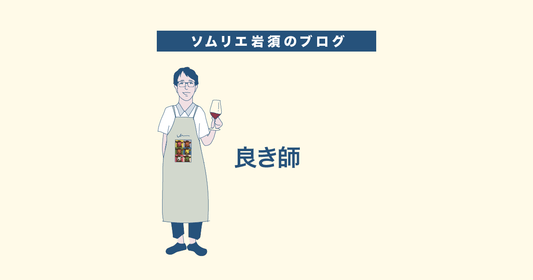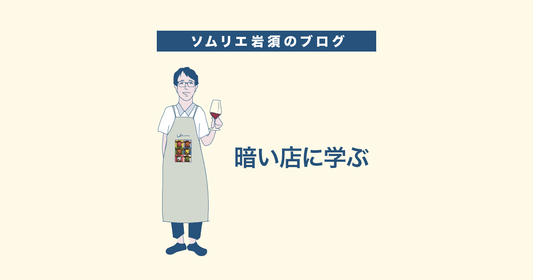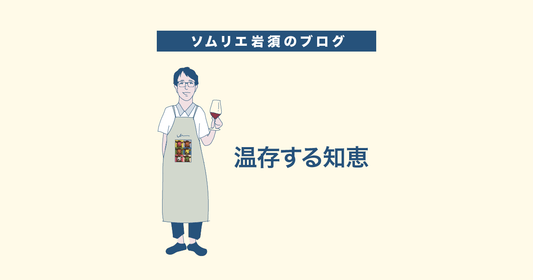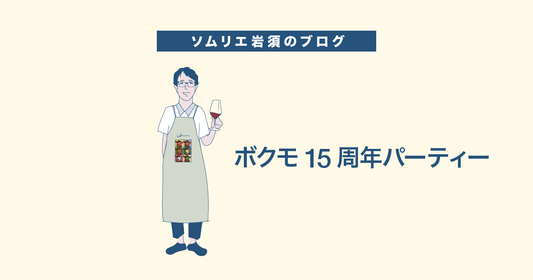
These days, I'm starting to wonder if autumn was really this short in Japan.
Just when it seemed like summer-like days were continuing, it suddenly got cold, and saury has become a luxury fish.
Somehow, I feel like autumn is different from the "image of autumn" I had in my mind.
By the way, do you know what is an important autumn feature for a wine store like ours that has a sommelier ?
Beaujolais Nouveau?
No no, that opens on the third Thursday of November, so it's pretty much a winter event.
Speaking of autumn, it's time for the second round of the Sommelier/Wine Expert Examination .
I'm sure I'm hearing people saying, "I don't know what that is," but this is a fairly big seasonal event in the world of wine in Japan.
To briefly explain this exam (skip if you already know), first of all, the Japan Sommelier Association's "Sommelier" certification exam is for people working in the food and beverage industry or alcohol distribution (with conditions such as working for more than three years), while the "Wine Expert" exam is open to anyone. Both exams test knowledge of wines from around the world and how to express their taste. Sommelier exams also include practical service skills.
The first exam is the same for both qualifications. Multiple choice questions are asked from a thick textbook like a phone book. You need a lot of memorization ability.
Those who pass the first memorization test then move on to the second test, which is a tasting test.
The wine expert section consists of four questions about wine and one about other alcoholic beverages; if you pass these you will pass the test.
For sommelier, there are three questions about wine and two about other alcoholic beverages. The pass/fail is determined by the total points of the "essay test" that is then taken and the points of the service practical test that is taken later.
In other words, in the world of wine, the "secondary examination" refers to the "tasting examination." This takes place around October every year, so it has become a seasonal feature of autumn.
(Skip to here)
Why is it important?
So why is this exam important for "wine stores with sommeliers"?
This is because every year, candidates for exams come to our store and ask, "Can I practice tasting?"
I passed the sommelier exam 8 years ago. Since then, every year before the second exam in October, there are people who come to the store with requests like, "Please do a blind tasting (identifying the characteristics of wine without any information)" or "Please let me try something that might come up on the exam."
I think it is very important for students taking entrance exams to visit our store.
When I was a student taking the exam, I visited the stores of senior sommeliers and was trained, and thanks to that experience I was able to pass. So this time, I have to do the same. I have to pass the baton of wine that I received to the next person.
Passing the exam won't make you understand the whole world of wine, but at least studying for it will give you basic knowledge about wine. Also, thinking about how to express the aroma and taste is probably something that Japanese people who have received a normal education have never tackled, so I think it's quite interesting just to try it.
So, I thought it would be great if I could contribute even a little to increasing the number of people who "intellectually enjoy wine" and "communicate the appeal of wine" by accompanying them in their practice, and so every year at this time I stock up on some nice wines for exam preparation, eagerly waiting for the test takers.
However, last year and this year, the COVID-19 pandemic hit. I wondered whether the second exam, which requires gathering people in person, could be held properly, but it was held as scheduled last year and this year. I'm sure the Sommelier Association had a lot of trouble leading up to the actual event.
However, last year, as a measure against infection, there was a rule that "you can't spit" in both the sommelier exam and the wine expert exam. This may have been a bit of a disadvantage for people who are weak to alcohol or whose sensors are easily dulled by alcohol. It can't be helped.
Also, this year, there was a mistake in the questions at the venue where the sommelier exam was held, where the questions were asked in the wrong order, so the answer to the mistake, "two other types of alcohol," will be treated as correct for all test takers (or in other words, this means the question is invalid).
In other words, the test consisted of only three questions about wine. This is probably unrelated to COVID-19, but it ended up being a test that was quite different from previous years.
What will happen this year?
This year, Bokumo was closed until the end of September, and reopened on reduced hours from October 1st, but I wondered whether students taking exams would actually come to the store, or if there might not be any this year.
In the end, five candidates came (more than expected!) and practiced tasting. I think we were able to pass the wine baton to them.
What surprised me was that one of them was a regular customer named Mr. T. Although he works in a job that has nothing to do with wine, he loves wine and drinks a variety of wines on a regular basis. Who would have thought that he had secretly taken the first stage of the wine expert exam! And passed it with ease! It's impressive...
We were grateful that people came to practice, but what we were even more grateful for was the day of the exam, Monday, October 18th.
Three people who had just finished their exams came to the store right after we opened, and we had the amusing sight of them sitting at the counter and discussing their experiences. What's more, the three people didn't know each other (one of them was a regular customer, Mr. T)! But they were like fellow students who had taken the same exam, and they were having a great time, exchanging comments like, "I never thought there would be two French wines on the list," and "Is Tempranillo really that weak?", and the relief from the tension of the exam.
By the way, the pass rate for sommeliers last year was 37.9%, and for wine experts it was 43.3%. That's about a 40% chance.
The results of the second exam will be announced on Wednesday, October 27th, the day after this blog post was published.
I would be happy if it was good news, but even if it's not good, I think that next year there will be many people who will be exempt from the first exam, so don't give up and keep trying. I'll be happy to help you practice again!
This week's pairing suggestions
"New Zealand beef skirt steak skewers"
New menu after the break. It is often served every day.
The skirt steak marinated in soy sauce koji is grilled and topped off with a sprinkle of dukkah, a spice that originated in the Middle East. The soy sauce, meat, and spices come together in your mouth and take you to happiness.

This wine would go well with it.
"Villa Maria Private Bin Merlot / Malbec / Cabernet Sauvignon 2019"

Villa Maria is one of the major wineries in New Zealand. The quality is stable and the price is reasonable. It is a perfect brand for those who want to enjoy New Zealand wine on their daily dinner table.
This wine is a slightly darker Bordeaux blend. Unlike the previous vintage of 2018, this year's 2019 vintage sees the addition of Malbec as the main variety.
Malbec is a variety that produces a deep color and has a strong astringency. It often has a black berry flavor, and this wine is no exception. It is a deep-colored red wine with a fruity flavor.
"It's difficult to find a rich, reasonably priced red wine" in the New Zealand wine market, so I think this wine is a rare find.
A strong Bordeaux-style wine goes perfectly with soy sauce and meat. I think this is the easiest wine and food pairing for Japanese people. Give it a try.





